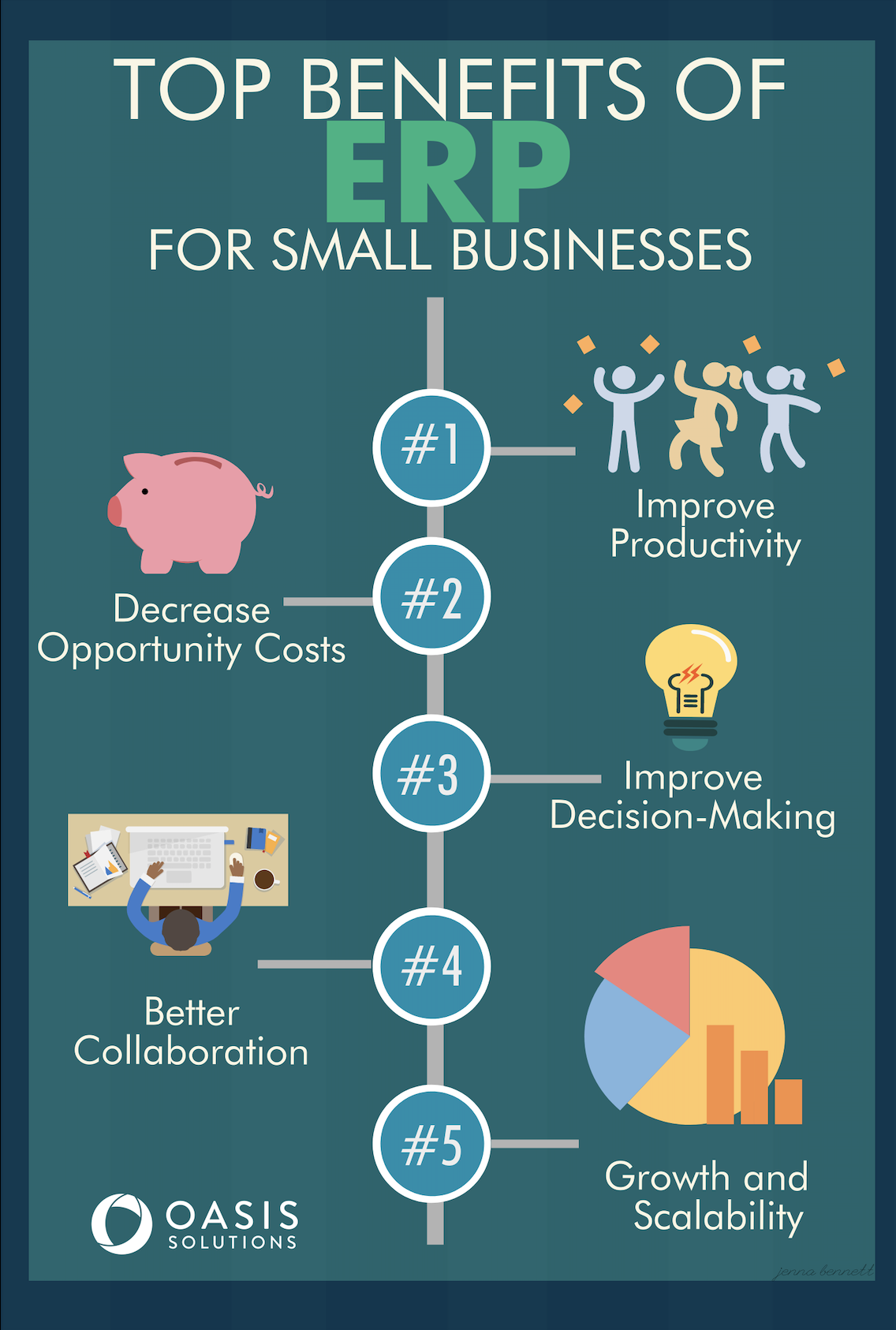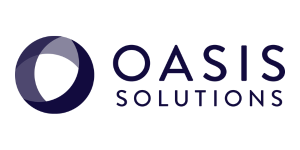Although Enterprise Resource Planning (ERP) systems are standard in large organizations, ERP systems aren’t just for the big guys! Generally, small businesses will use some type of accounting, finance, and HR process, but the software systems often seem to work separately, unable to talk or work with one another effectively.
Even if your business is small, an ERP is designed to facilitate and manage the core processes of your business to improve client and supplier interactions. The benefits of implementing an ERP system are too great to pass up when thinking on a long term level— especially in today’s globally competitive world.
#1 Improve Productivity
An ERP system streamlines the process of collaborating with others by providing your employees with access to the data they need when they need it! Your employees will be able to make decisions more confidently and with a better scope of success.
Implementation of an ERP system allows employees the time and space of mind to focus on the more critical work. Since they won’t be relying on any guesswork for the job, it will immediately improve their overall productivity.
#2 Decrease Opportunity Costs
Each decision that you make will have opportunity costs and has the potential to affect your business. Errors happen; it is a fact of life. Careless mistakes will cost you money.
An ERP can reduce the error rate in your business practices by standardizing procedures and workflow throughout all departments.

#3 Improve Data-Driven Decision-Making
Properly controlling data access is always a challenge in organizations. With an ERP system, the use of advanced user management and access control overcomes. By providing real-time data, small business owners can make difficult decisions simpler and can quickly respond to changes in the business environment.
#4 Better Collaboration
An ERP system is a management resource that controls the entire organization through a unified database. When updating a file in one department, the data is visible across the organization in real-time. Improving collaboration cuts down communication time and quickens the pace of day-to-day operations of your business.
#5 Growth and Scalability
Because of the increased data clarity that an ERP system provides, employees can adjust their attention to manage increasing volumes of business. An ERP system will assist your small business to improve with growth without ever feeling disorganized or overwhelmed.
As your small business grows, new challenges will arise. Processes will get more complicated, supply chain management is harder to control, and financial expenditures will increase. Your businesses efficiencies tend to fade if you are not utilizing all of your information in productive ways. No business is too small for an ERP solution.
Ready to start reaping the benefits of ERP solutions? Learn more about choosing the right ERP solution:
Related Articles:
7 Easy Steps to Success: ERP Implementation
Characteristics of Top ERP Systems



